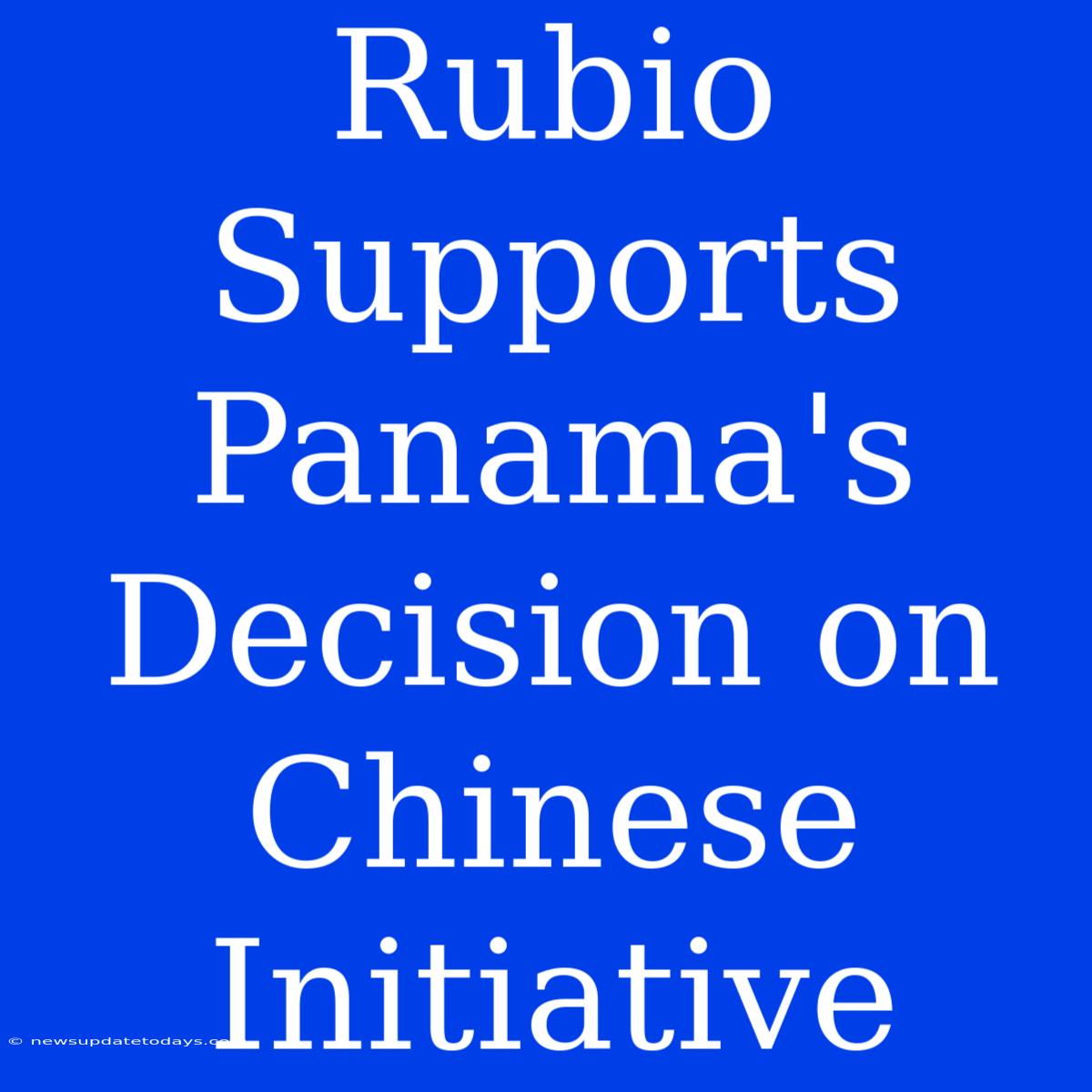Rubio Backs Panama's Rejection of China's Belt and Road Initiative
Marco Rubio's strong stance against China's growing influence in Latin America takes center stage as he applauds Panama's decision to distance itself from the Belt and Road Initiative (BRI). This move underscores a growing trend of nations reevaluating their participation in the ambitious Chinese infrastructure project, raising questions about its long-term viability and impact on global geopolitics.
Panama's Strategic Shift: A Blow to the BRI?
Panama's recent decision to halt its involvement with the BRI represents a significant setback for China's flagship foreign policy initiative. While the exact reasons behind Panama's withdrawal remain somewhat opaque, it's widely speculated that concerns over debt sustainability, transparency issues surrounding BRI projects, and increasing geopolitical pressure played significant roles. This strategic shift is particularly noteworthy given Panama's geographical location and its importance as a key transit hub in the Americas.
Senator Rubio's Vocal Support: A Warning to Other Nations?
Senator Rubio's vocal support for Panama's decision is a clear indication of the United States' continued vigilance regarding China's expanding global reach. His statement can be interpreted as both an endorsement of Panama's sovereign decision and a subtle warning to other nations considering participation in the BRI. He likely views Panama's move as a victory in the ongoing geopolitical competition between the US and China, bolstering his argument that closer ties with the US offer greater economic and political stability.
The Broader Implications: Debt Traps and Geopolitical Strategy
The BRI, while touted as a driver of global infrastructure development, has faced criticism for its potential to create unsustainable debt burdens for participating nations. Many analysts argue that the initiative is as much a geopolitical strategy as it is an economic development program, aiming to expand China's influence and project power globally. Panama's decision, coupled with Rubio's endorsement, casts a spotlight on these concerns and encourages a closer examination of the BRI's true motivations and long-term consequences.
What's Next for the BRI? Challenges and Uncertainties
Panama's withdrawal raises serious questions about the future of the BRI. Will other nations follow suit? What are the long-term economic and geopolitical implications of this trend? The answers remain uncertain, but one thing is clear: the BRI is facing growing scrutiny, and its continued success is far from guaranteed. The narrative surrounding the BRI is shifting, with increasing focus on its potential downsides.
Conclusion: A Test of Global Power Dynamics
Senator Rubio's backing of Panama's decision is a powerful statement in the ongoing contest between the US and China for global influence. Panama's move, while potentially risky in the short term, may set a precedent for other nations grappling with the complexities and potential pitfalls of participating in the BRI. The coming years will be crucial in determining the ultimate impact of Panama's strategic shift and the long-term viability of China's ambitious Belt and Road Initiative. The debate over the BRI's merits and drawbacks is far from over, and events like Panama's withdrawal will likely continue to shape the global geopolitical landscape.

